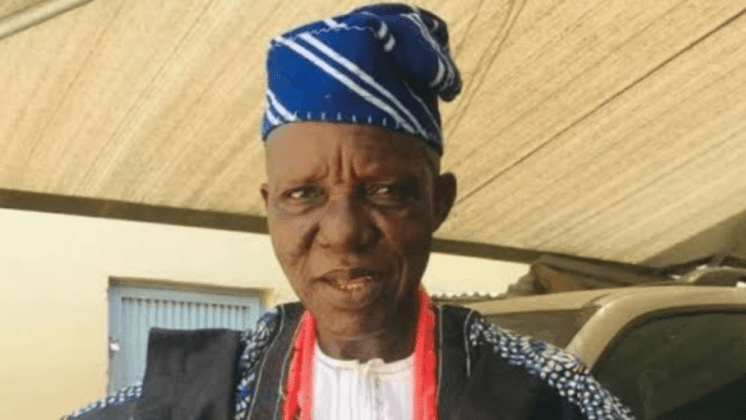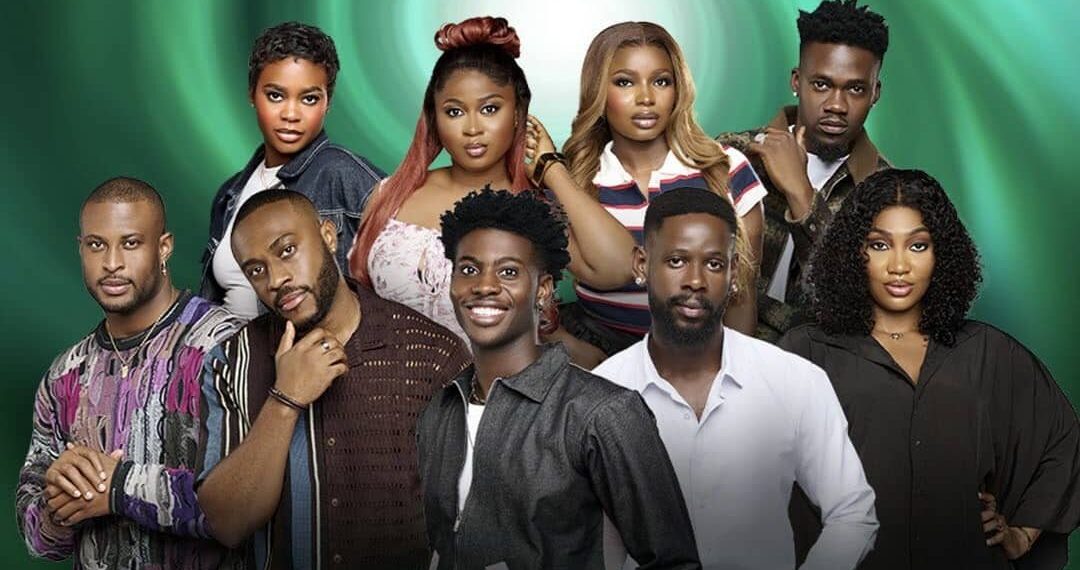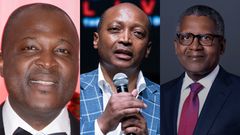In a development that reflects the complexities and internal debates within Nigeria’s entertainment scene, veteran actor Babatunde “Baba Fokoko” Bamgbode has responded to recent allegations swirling around Musiliu ‘MC Oluomo’ Akinsanya, President of the National Union of Road Transport Workers (NURTW). The drama surfaced when fellow actor Fatai “Lalude” Adetayo voiced disappointment, claiming MC Oluomo fell short on promises made to those who campaigned for President Bola Tinubu ahead of the 2023 general elections.
According to a report by PREMIUM TIMES in June, Lalude alleged that MC Oluomo failed to deliver on a pledge of N1.5 million, despite the rigorous efforts and visible presence of actors in the campaign trains supporting both Mr. Tinubu and Lagos State Governor Babajide Sanwo-Olu. The campaign, which reportedly spanned over a month and nearly two weeks, featured several known faces from Nollywood and Yoruba cinema, drawing attention to the evolving role of artists in national politics.
Lalude’s statements added fuel to a simmering fire, especially after other participants, who were similarly involved in the campaign, expressed regret and pointed to a sense of neglect post-election. In a country where public figures often play pivotal roles in elections, the question of reward and recognition after the fact remains sensitive.
However, Baba Fokoko, speaking in a widely circulated interview clip, sought to set the record straight from his perspective. He categorically denied Lalude’s version of events, maintaining that MC Oluomo was both generous and forthright with campaigners throughout the process.
Dissecting the Discord: What Did Campaigners Receive?
Baba Fokoko elaborated on his experience, pointing out that MC Oluomo never made specific promises of payment or gifts to those who campaigned. He recounted, “Till we finished, he brought food for us to share, and the remainder was given to us, and we went home. He didn’t tell me and others that this is what we’ll get after the whole process, but he had it in mind to do us well. He didn’t promise to give anyone anything (money or others). After we left, he called us for a meeting and gave us something, a huge amount of money. Each of us smiled home. No one can deny that.”
His comment underscores a key difference in perception between participants. For Baba Fokoko, the benefits were spontaneous and not pre-negotiated, while for others, previously communicated expectations may have colored their reactions. The actor further emphasized individual accountability, saying, “It’s left to those who came out, and I believe we have some people who will say the same thing I have said. That’s left to them and God. Maybe he promised them or not, but he didn’t call me Baba Fokoko; he would give me money after we were done, but he had it in mind to do us well. We’re all humans, and I didn’t want to talk much. If the government called us and informed us, and he didn’t do it, then we can say he promised us. That’s what happened, and God is my witness.”
A Matter of Perspective: Behind the Scenes of Grassroots Campaigning
Baba Fokoko went further, giving rare insight into the logistics and day-to-day realities of working on the campaign trail. He recounted how MC Oluomo ensured that participants were well looked after, with daily stipends and accommodations taken care of throughout the period. “MC Oluomo kept his word and ensured they were paid daily upon returning from the campaign,” he stated, suggesting an organized approach that extended beyond mere verbal encouragement.
Yet, Baba Fokoko acknowledged that every group has its share of dissent. He invoked a Biblical analogy to explain the discord, remarking that “there’s no way we won’t have weed and wheat, even the Bible says they should grow together. If you need to, you’ll separate them.” For him, grievances may have sprung up as a result of misunderstandings, but MC Oluomo acted swiftly to address them. “Later, they wanted to spoil the system of giving money, so he stepped in himself and made an amendment. Some of us wanted to scatter it, but he wasn’t aware. Because he just sent money. When he saw it was about to bring issues, he stepped in and resolved it.”
Community Reactions and the Role of Support Networks in Nollywood
As the Nollywood industry continues to influence national discourse, the relationship between celebrities and political power remains an evolving dynamic. Baba Fokoko’s statements serve not only as a defense of MC Oluomo but also as a commentary on loyalty, expectations, and the nature of informal contracts within the sector. His testimony stands in contrast to some others, highlighting the varied and sometimes personal interpretations of such collaborations.
Adding to this complexity, observers across Nigeria and West Africa have pointed out that the entertainment industry has long struggled with recognition for its contributions to political mobilization—a trend not unique to this case. Compared to other African democracies, Nigeria’s entertainers remain especially visible in electoral campaigns, often mobilizing large fan bases and lending credibility to candidates. However, the lines between professional engagement, personal loyalty, and material expectations are frequently blurred.
Reputation, Recognition, and the Question of Generosity
Further into the interview, Baba Fokoko shed light on his longstanding relationship with MC Oluomo, painting him as both a benefactor and a loyal friend. He described Oluomo as a “kind and generous individual who ensures that no one around him goes hungry,” recounting personal stories such as being sponsored to Mecca by MC Oluomo in 2008 and receiving consistent financial and emotional support. “Since I have known him, he has never wanted people around him to suffer, even before he made it big. It has been giving long before he became known. It’s only those who didn’t know him would say otherwise,” he said.
Such testimonies echo broader societal expectations in Nigeria and many West African countries, where public figures and leaders are often expected to extend philanthropy to their allies and communities. This culture of largesse, while sometimes fueling loyalty and cohesion, has also sparked debates over sustainable development and the potential downsides of patron-client relationships in politics and entertainment alike.
Divergent Views and Implications for the Future
The differences in the narratives presented by Baba Fokoko and Lalude bring up salient questions about the ethics of reward, recognition, and transparency. While Baba Fokoko’s account emphasizes goodwill, generosity, and resolved misunderstandings, critics argue that the lack of formal agreements leaves too much room for confusion or disappointment. According to Lagos-based social commentator Adeola Ogunyemi, “This episode demonstrates the challenges that come from mixing friendship, business, and politics in a highly informal industry. Both sides may be telling their truth based on their individual expectations and experiences.”
From Accra to Nairobi and Johannesburg, such controversies are not new. Across the continent, disputes regarding campaign promises and post-election benefits reflect deeper issues—namely, the need for clearer terms and the professionalization of creative industries in their interactions with political stakeholders.
The Bigger Picture: How Should Entertainers Navigate Political Engagements?
As the dust settles, many are left questioning the rules of engagement between the creative sector and political actors in Nigeria. Should entertainers formalize expectations with written agreements before lending support to campaigns? How can both sides protect themselves from future misunderstandings? Industry experts advise that while informal arrangements may have sufficed in the past, larger sums of money, visibility, and the growing importance of media endorsements now demand more structured engagement.
Some insiders have called for regulatory bodies within the entertainment industry to provide guidelines and advocacy, helping practitioners set minimum standards for compensation and recognition when involved in public advocacy or campaigns. Such measures, they argue, could protect both reputation and relationships long after the campaign season is over.
As supporters and detractors of both MC Oluomo and the actors involved continue to debate the matter on social media and in public forums, the story stands as a reminder of the power—and perils—of influence in Nigeria’s public sphere. The Nollywood community, and indeed audiences across West Africa and beyond, are watching closely to see if future engagements will chart a more transparent and equitable course.
What do you think about the debate surrounding rewards and recognition for celebrities who campaign for politicians? Should there be clearer agreements or does informal generosity suffice in our context? Drop a comment below and join the conversation. Stay tuned for updates on this and other Nollywood stories.
For general inquiries and support, reach us at support@nowahalazone.com.
Don’t forget to follow us on Facebook, X (Twitter), and Instagram for the latest buzz and community stories!










